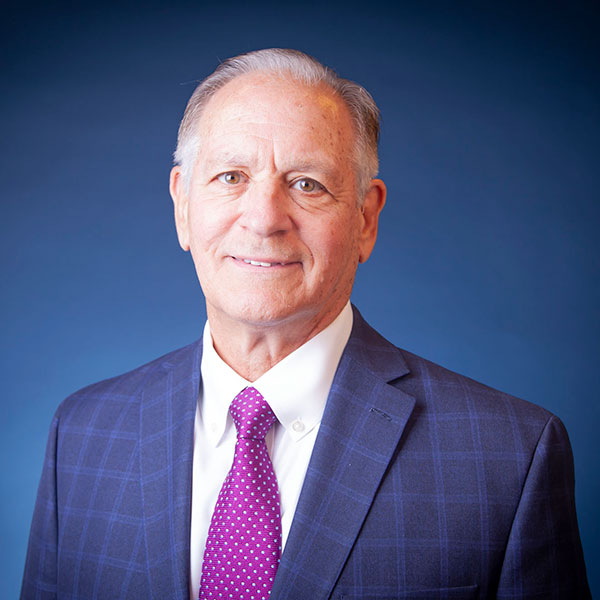Joshua and Caleb faithfully spied out the land of Canaan, but little is known about Caleb. Still, we can learn much from this faithful leader in Israel.

The leadership of Joshua and Caleb, highlighted in the account of spying out the Promised Land, is well known to Bible students (Numbers 14). When 10 of the 12 spies commissioned to inspect the land of Canaan came back with an evil report, they fostered fear among the people. But both Joshua and Caleb reassured the people that God would ensure their success.
Joshua and Caleb in the Bible
Joshua was the one chosen by God to succeed Moses and lead the children of Israel into the Promised Land. The sixth book of the Old Testament bears his name and records his leadership and courage. Joshua’s bold declaration of steadfastness is an often-quoted scripture underscoring his dedication to God: “As for me and my house, we will serve the LORD” (Joshua 24:15).
So, Joshua’s achievements and character are well-chronicled, but what about Caleb’s? We are familiar with the name because of the link with his better-known fellow spy, but not much is known about him specifically.
His life is worth examining because it provides vital lessons for those desiring to enter God’s spiritual Promised Land, the Kingdom of God. We all need to have some of Caleb’s traits.
Meaning of Caleb
Names are important to God. Abram’s name was changed to Abraham since he would be the father of many nations. Jacob’s name, which meant “supplanter,” was changed to Israel because he would be called a prince of God. Simon in the New Testament became Peter, which means rock.
But what about Caleb? In Hebrew, Caleb means “dog.” Not too many of us would enjoy being called dog. However, we should remember that dogs can be faithful, loyal, protective and reliable, among other qualities. Since he exhibited each of these attributes, perhaps the name Caleb is appropriate after all.
Moses chooses the 12 spies
Prior to entering the Promised Land, the Israelites came to Moses with a request:
“And every one of you came near to me and said, ‘Let us send men before us, and let them search out the land for us, and bring back word to us of the way by which we should go up, and of the cities into which we shall come.’ The plan pleased me well; so I took twelve of your men, one man from each tribe. And they departed and went up into the mountains, and came to the Valley of Eshcol, and spied it out” (Deuteronomy 1:22-24).
There really were giants. But Caleb did not allow that to nullify the power of God. Fear did not control his life. He allowed it to motivate him to turn to God’s greater strength.
We first read of Caleb in Numbers 13. Joshua was of the tribe of Ephraim, and Caleb represented Judah (verses 6, 8). Caleb would have been 40 years of age when he was chosen to spy out the Promised Land.
The Bible also says Caleb was the son of Jephunneh who was a Kenizzite (Numbers 32:12). According to Barnes’ Notes of the Bible: “Kenaz (Genesis 36:11) was the name of one of the ‘dukes of Edom:’ but Israel and Edom were of kindred origin, and the use of similar names by the two peoples is not surprising.”
The 12 spies were heads of the children of Israel. They all, including Caleb, must have been recognized as trustworthy, responsible leaders (Numbers 13:1-3, 16).
Caleb and Hebron
While exploring the land of Canaan, it seems Caleb was particularly impressed by the hilly mountainous region of Hebron that he would inherit later (Joshua 14:12-14).
Hebron is very important in biblical history. The cave of Machpelah (also called the Cave of the Patriarchs) is located there. It is the traditional burial place of Abraham and Sarah, Isaac and Rebekah, and Jacob and Leah. David ruled Judah from Hebron for seven years before moving his capital to Jerusalem (2 Samuel 2:11).
Lessons from the 12 spies
As we know, the report from 10 of the spies, though glowing in some respects (Numbers 13:27), was also full of dire foreboding (verses 28-29). They spoke of walled cities, strong warriors and even giants.
Their report was evil because it was an exaggeration that instilled doubt and fear in the hearts of the people. The 10 cowering spies charged that God was not able to fulfill His promise to give them this land flowing with milk and honey.
We know that both Joshua and Caleb attempted to reassure the people of God’s power. Yet we find in Numbers 13:30 that it was Caleb who stepped forward to calm the people: “Then Caleb quieted the people before Moses, and said, ‘Let us go up at once and take possession, for we are well able to overcome it.’”
Often when recounting the intervention of these two champions, the Bible will list Caleb first, then Joshua (Numbers 14:30; 26:65; 32:12). Perhaps this is because of the boldness and courage he showed in Numbers 13:30 and other instances.
Instead of listening to Joshua and Caleb, the people fearfully doubted God and thus were restricted from entering the Promised Land (Numbers 14:30-33). It was a tragic moment in Israel’s history, and they paid a terrible price.
The lesson of trusting in God is one we are to remember as Christians, so we do not repeat the same mistake (1 Corinthians 10:11).
Caleb at 85
We next pick up the story of Caleb in the book of Joshua, when the Israelites finally conquered much of Canaan more than 40 years later.
Because of Caleb’s faithfulness, Moses had promised he would receive the portion of land that he spied out in the area of Hebron. Once the children of Israel had secured their claim to Canaan, Caleb asked Joshua to grant him what Moses had promised. Moses made that promise when Caleb was 40 years of age. He was now 85 (Joshua 14:6-10).
Despite his age, Caleb still had the zeal, strength and, most importantly, faith to drive out the people who occupied the area around Hebron.
“Now therefore, give me this mountain of which the LORD spoke in that day; for you heard in that day how the Anakim were there, and that the cities were great and fortified. It may be that the LORD will be with me, and I shall be able to drive them out as the LORD said” (Joshua 14:12).
Joshua 15:13-17 shows how Caleb, with the help of his relative Othniel, took possession of the land he had been promised.
Lessons of faith
Our anticipated desires in this life and God’s promises of intervention can take longer than we would like. But, through patience and faith, we will obtain all that God promises.
Some important lessons can be learned from the life of this often-overlooked hero in Israel. Israel’s physical Promised Land is likened to the Kingdom of God, the spiritual Promised Land (Hebrews 4:1). Like Caleb, we must be able to stand up in faith even when the majority of those around us are advocating for unprofitable or faithless options.
Jesus told His disciples, “Enter by the narrow gate; for wide is the gate and broad is the way that leads to destruction, and there are many who go in by it” (Matthew 7:13). Christians are to have the strength and discernment it takes to follow what is right in God’s sight, not just what is popular. Caleb was that kind of man.
Caleb was a man fully committed to following the God of Israel. Though the Israelites doubted, he gave himself completely to God’s plan for His nation. As God said, the unbelieving Israelites would not see the Promised Land, “except Caleb the son of Jephunneh; he shall see it, and to him and his children I am giving the land on which he walked, because he wholly followed the LORD” (Deuteronomy 1:36).
Following God wholly (entirely) means we are not double-minded (James 1:8). We must not be committed to God at one time or circumstance but committed to a different agenda at other times.
Overcoming fear
Fear did not dictate Caleb’s actions. Fear, which is linked with disobedience in Revelation 21:7-8, can lead to exaggeration of the circumstances, as we saw in the spies’ reports (Numbers 13:33). The report of giants in the land was not a myth. There really were giants. But Caleb did not allow that to nullify the power of God. Fear did not control his life. He allowed it to motivate him to turn to God’s greater strength.
Christians also encounter circumstances generating real fear, but they must not allow that emotion to control their choices.
At age 85, Caleb was still zealous and strong in faith and in matters pertaining to God’s will. Christians can grow weary physically, but they are to remain vibrant spiritually. “Therefore we do not lose heart. Even though our outward man is perishing, yet the inward man is being renewed day by day” (2 Corinthians 4:16).
Faith and patience
Finally, we see that Caleb was patient to receive God’s promises of inheritance. Moses promised Caleb that he would receive Hebron for his faithfulness, but it was not until age 85 that he had it as his own possession.
Patience is a vital component of Christian living. “By your patience possess your souls” (Luke 21:19).
Our anticipated desires in this life and God’s promises of intervention can take longer than we would like. But, through patience and faith, we will obtain all that God promises.
What made Caleb different?
Caleb the son of Jephunneh was indeed a pioneer of the physical Promised Land. He demonstrated traits of character that show us the way to God’s spiritual Promised Land. Numbers 14:24 says, “But My servant Caleb, because he has a different spirit in him and has followed Me fully, I will bring into the land where he went, and his descendants shall inherit it.”
Caleb allowed God’s Spirit to impact his life, which is the main reason he responded differently than the other 10. God’s Spirit is the key to our going forward (Philippians 4:13) and receiving our promised inheritance in the Kingdom of God.
For further insight into the life and faith of Caleb, read the article “Spiritual Warfare: How to Win and How to Lose.”





